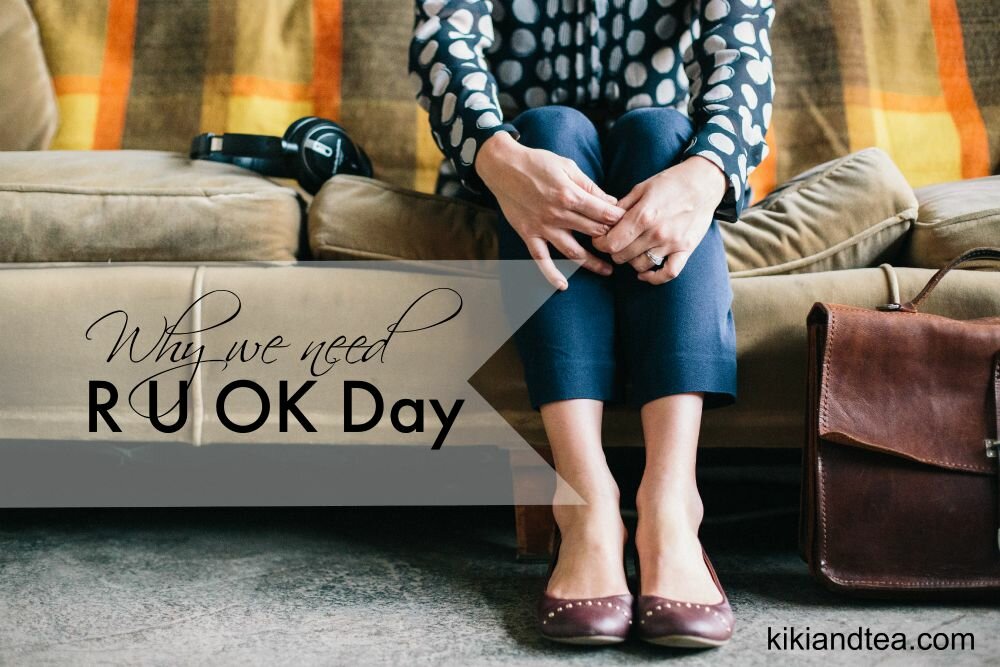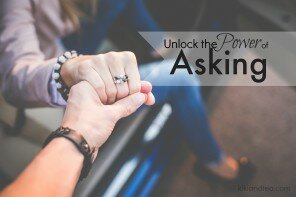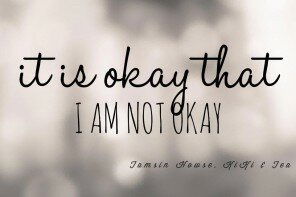Yesterday was R U OK Day. A few people asked me if I was okay during the day. A fairly timely question when you consider so recently (yet so long ago) I really wasn’t okay. I appreciated being asked, appreciated people checking in. They do it regularly, whether it’s national suicide prevention day or not, and it’s a wonderful thing.
Last night as I was drifting off to sleep a close friend messaged me “R U OK Day: Valid movement or prone to superficial question?”
Without hesitation I responded “100% valid movement”.
They sent me screen shots of people on their facebook feed who felt otherwise and asked me to write about it. So that’s what I’m doing.
Many people seem to feel that R U OK day is just a superficial thing. A day we all go around asking people if they’re okay but not really caring about the answer. Not really caring about their mental health. A day that trivialises the important conversations we should all be having.
To the last point, I say: Fantastic!
These conversations shouldn’t be a big deal. They shouldn’t be the conversations we’re afraid to have, they should be the conversations we have all the time. It should be as easy to say “I am really struggling with my mental health today” as it is to say “My stomach is a bit upset”.
But it isn’t.
The mental health crisis is very very real. And we, as a society, seem completely unwilling to accept that all of our organs get sick. Not just our stomachs, or our lungs, or our hearts, but also our brains.
As Ruby Wax says in her (and you’ll hear more about Ted Talks from me very soon) in reference to being institutionalised:
“I wasn’t sent a lot cards or flowers. If I had a broken leg I would have been inundated. But all I got was a couple of phone calls telling me to perk up. Perk up. Cause I didn’t think of that. The one thing you get with this illness, because this one comes with a package, you get a real sense of shame.”
And it’s true, you do.
I wrote a post for R U OK Day in 2012 titled My Husband is Suicidal and I published it under someone else’s name.
Because, God forbid, I actually admit that it’s me. That it’s my husband who almost ended his life.
I changed the details of our story to hide that it was me, but the point was the same. The moments were true. And if you look closely you’ll notice it’s written the way I write, it sounds like me. It shouldn’t be too hard to tell and, to be fair, I wasn’t particularly concerned with pretending it wasn’t.
Earlier this year when I published my post admitting I was not okay, I didn’t expect the reaction it garnered. I didn’t expect people to argue with me about being (or not being) grateful for people caring about my wellbeing. I didn’t expect people to interpret it as as an attack on them, and to take me down for not expressing myself as well as I could have. For trivializing their care.
But the worst part was showing up to work and realising everyone in my team read it. Everyone in my team was not okay, because I was not okay.
I couldn’t cope, and I shut down my facebook. I didn’t answer phone calls or messages. I put on a happy face at work and I pushed through. I faked it until I made it. And eventually, I felt better.
We shouldn’t have to feel shame for not being okay. These conversations should happen regularly, openly. Illness of the brain should be as easy to admit as saying you have a broken leg from falling down the stairs.
We need R U OK Day and we will continue to need it until people are as willing to have a conversation about their mental health as about their physical health. We need it to break down the stigma, to open conversations and to trivialise (yes, trivialise!) these conversations. To normalise them. To make them as common as admitting you have a headache, or a stomach upset, or any of the other physical symptoms we express to people every day without even blinking.
Until we are willing to admit we are not okay, we will continue to need R U OK Day.
What do you think? Do you believe we need R U OK Day?








